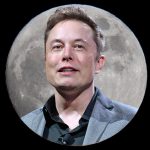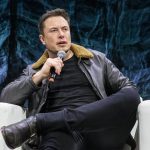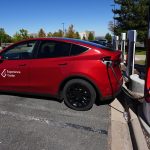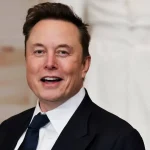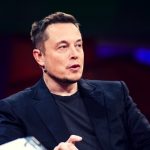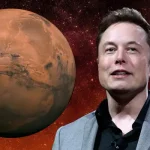Elon Musk Donates $5 Million to Rural Internet Access Programs

Elon Musk Donates $5 Million to Rural Internet Access Program: Bridging the Digital Divide
1. A $5 Million Investment in Connectivity: Musk’s Latest Contribution
In a remarkable move, Elon Musk has announced a $5 million donation to a rural internet access program aimed at bridging the digital divide that affects millions of people in underserved regions. This generous pledge comes at a critical time, as rural areas across the globe continue to grapple with limited access to high-speed internet, a situation that has been exacerbated by the COVID-19 pandemic, remote work trends, and the increasing need for digital education.
The $5 million donation will be used to expand internet infrastructure in rural communities, ensuring that these areas are not left behind in the digital age. Musk’s commitment to improving internet access is not a new endeavor; his companies, such as SpaceX, have been actively working on solutions to provide reliable and affordable internet to remote regions through the Starlink project, which aims to deploy thousands of low-orbit satellites to provide global broadband coverage.
While the donation represents a significant financial commitment, it also signals Musk’s continued dedication to tackling one of the most pressing issues of the 21st century—digital inequality. Musk has long been vocal about his desire to make the world a better place through technological innovation, and his philanthropic efforts in expanding internet access reflect this goal.
In his announcement, Musk emphasized the importance of providing rural communities with the same opportunities and resources as urban areas. “The internet is a vital tool for education, healthcare, business, and personal connection. It should not be a privilege reserved for those living in cities,” Musk said. “This donation is just one step toward ensuring that everyone, regardless of where they live, has access to the digital world.”
2. The Digital Divide: A Growing Issue in Rural Communities
The digital divide has been a long-standing issue, particularly in rural areas, where access to high-speed internet is often limited or non-existent. According to a report by the Federal Communications Commission (FCC), nearly 19 million Americans live in areas with no broadband access, and rural communities are disproportionately affected. This lack of internet connectivity has a far-reaching impact on many aspects of life, from education to healthcare to economic opportunities.
In rural areas, students often struggle to keep up with their peers in urban settings because they lack reliable internet for remote learning. This has become particularly apparent during the COVID-19 pandemic, when millions of students were forced to learn from home. Many rural students were left behind due to inadequate internet infrastructure, hindering their ability to access educational resources, attend virtual classes, and complete assignments.
Similarly, healthcare services in rural areas are often less accessible, and the pandemic only highlighted the importance of telehealth services. Rural residents who lack access to high-speed internet are unable to benefit from telemedicine appointments, which can be a crucial tool for patients in remote regions who don’t have access to nearby healthcare facilities. This digital divide creates significant barriers for rural populations, contributing to inequality in both education and healthcare.
The lack of reliable internet also has a detrimental effect on economic opportunities in rural areas. In an increasingly digital world, the ability to participate in the online economy is essential for small businesses and entrepreneurs. Many rural businesses struggle to expand their operations or reach new customers due to slow or unreliable internet. By improving rural internet access, Musk’s donation can help level the playing field, providing these communities with the tools they need to thrive in the digital economy.
Musk’s $5 million donation is aimed at addressing these disparities by providing rural communities with the infrastructure necessary to access high-speed internet. By improving connectivity, the program will help bridge the gap between urban and rural areas, providing more equitable opportunities for education, healthcare, and business development.
3. Musk’s Role in Expanding Global Internet Access: The Starlink Project
While the $5 million donation to rural internet access programs is a significant contribution, Musk’s long-term vision for global internet access goes beyond traditional infrastructure. Through SpaceX’s Starlink project, Musk is working to provide high-speed internet access to even the most remote corners of the Earth. Starlink uses a network of low-orbit satellites to provide broadband internet to areas that are difficult or expensive to reach through traditional cable or fiber-optic networks.
Starlink has already begun operating in several countries, and its expansion is rapidly accelerating. The service has been particularly beneficial in rural and underserved areas, where traditional internet infrastructure is either unavailable or too costly to build. By using satellites to deliver internet directly to homes and businesses, Starlink is able to bypass the limitations of ground-based infrastructure, providing fast and reliable internet to people who would otherwise be left out of the digital world.
The success of Starlink could revolutionize internet access, not just in rural areas but also in developing countries, where traditional broadband networks are often non-existent. Musk’s ultimate goal is to offer affordable internet access to everyone on Earth, regardless of their location or socioeconomic status. By combining satellite technology with ground-based programs like the rural internet access donation, Musk is taking a comprehensive approach to solving the digital divide.
The $5 million donation is expected to complement Starlink’s efforts by funding local initiatives that work to establish the necessary infrastructure in rural areas. While Starlink provides the satellite-based connectivity, the donation will help build the ground infrastructure, such as wireless towers and broadband equipment, that is needed to bring internet to homes and businesses in rural communities.
In the future, Starlink could become a central tool in addressing global internet inequality, and Musk’s donation is a step in that direction. However, challenges remain, including regulatory hurdles, the high cost of satellite deployment, and the need for ongoing investment in technology to ensure that internet access remains affordable for all.

4. A Vision for the Future: How Musk’s Donation Could Change Rural Connectivity
Elon Musk’s $5 million donation is more than just a financial pledge—it is part of a broader vision to reshape the future of connectivity. By focusing on rural areas, Musk is addressing a critical issue that has been largely ignored by traditional internet service providers, many of whom find rural areas too costly or difficult to service.
This donation could serve as a model for other tech leaders and philanthropists to follow, encouraging them to invest in projects that bring high-speed internet to underserved communities. The benefits of improving rural internet access go far beyond the immediate impacts on education and healthcare; they can also help foster a culture of innovation and entrepreneurship in rural areas, empowering individuals to participate in the global digital economy.
For example, better internet connectivity will enable rural communities to take advantage of online education programs, opening up new career paths for students and adults alike. Telemedicine services could become more widespread, reducing the strain on rural healthcare facilities and improving access to care for residents. Small businesses in rural areas could tap into new markets, increasing their revenue and providing job opportunities for local residents.
In addition, the increased connectivity could have a positive effect on local governments and public services, enabling them to streamline operations, improve communication, and better serve their constituents. The possibilities are endless, and the $5 million donation is just the beginning of what could be a transformative effort to bring the digital world to rural communities.
As Musk’s initiatives continue to expand, the hope is that rural communities will no longer be left behind in the digital age. Musk’s donation and the ongoing development of SpaceX’s Starlink program could be the key to closing the digital divide, not just in the United States but around the world.
In conclusion, Elon Musk’s $5 million donation to rural internet access programs represents a significant step in the fight to provide equal access to the digital world. With a focus on education, healthcare, and economic development, this contribution has the potential to change lives in rural communities and provide them with the tools they need to thrive in the digital age. Musk’s long-term vision for global connectivity, supported by projects like Starlink, holds the promise of a more equitable and connected future for all.
